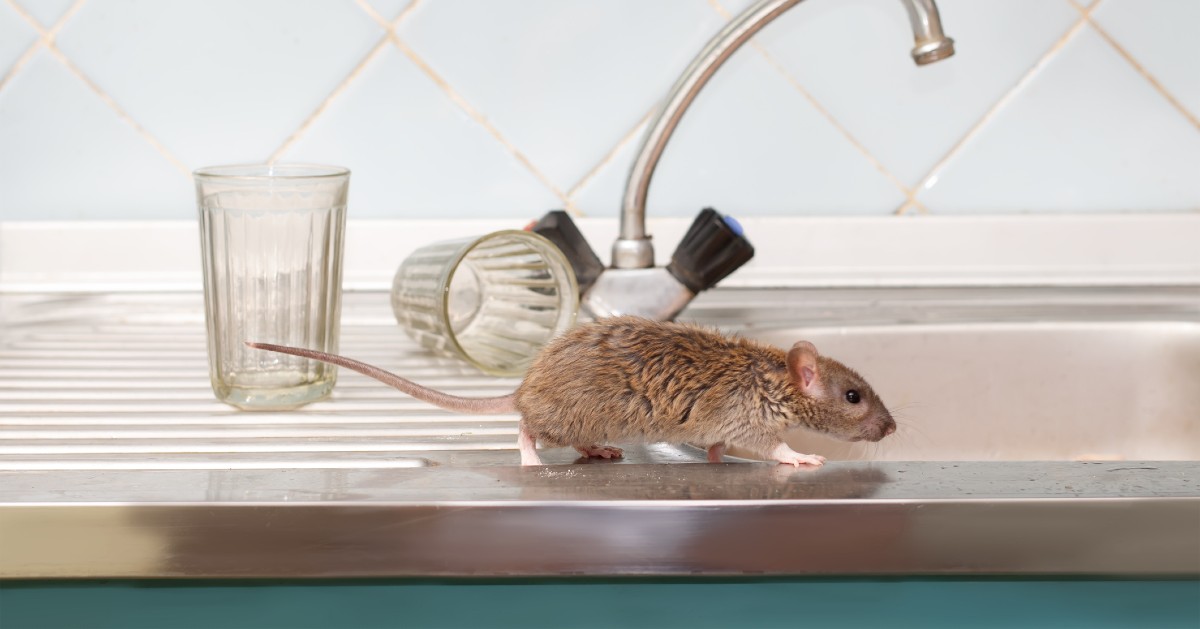Mice are more of a problem than you might imagine for homeowners in Stockton, CA. Rodents are plentiful in California, and mice are one of the most common that cause headaches in houses.
Not only do mice carry diseases, but their feces can aggravate allergies and asthma in some individuals. Mice are also incredibly damaging to homes. Like other rodents, mice are voracious chewers and have destroyed wiring, cables, and insulation. Having a mouse problem can cost you a lot of money if you don’t take care of it soon enough. Mice also live in families but are excellent at hiding. So, if you’ve spotted one, there are likely others nearby.
How can I tell if I have mice in my house?
If you have not seen an actual mouse, but you have a few signs of them, it’s likely they either have a fantastic hiding spot, or you aren’t awake during their hours. Mice are nocturnal, so it’s typical to notice a few signs of them without seeing the mice themselves.
- Tiny droppings that look similar to black grains of rice
- Skittering and scratching noises in walls, cabinets, or ceilings
- Small gnawed areas on food goods, on walls, or things like wiring
- Holes chewed into food products or other items in your pantry
- A musty odor
- Spotting a mouse inside or around the perimeter of your home
You do not need to see all of these signs to confirm you have a mouse problem. Seeing even just one or two clues that mice are around is worth calling a professional to have your home inspected for mice.
What’s the difference between mice and rats?
If you spotted a rodent in or around your home, you might be wondering if it was a mouse or a rat. They do look similar, but mice are generally smaller than rats. Mice also have larger ears and eyes for the size of their head.
A full-grown mouse will be about seven inches long (including tail), whereas a full-grown rat can be as big as 12 to 14 inches in length, including the tail. Mice also have skinnier tails, while rats have thicker, more noticeable tails. Mouse droppings are also a bit smaller than rat droppings.
How can I keep mice out of my home?
The best way to keep mice out of your home is to ensure that they cannot get in. Your next step is to make the environment as unappealing to mouse nesting as possible. Try using these tips for the best mouse prevention.
- Make sure you have no cracks or openings in foundation, doorways, or windows
- Store all food completely sealed in air-tight containers
- Do not hang birdfeeders
- Keep trash sealed with a lid on top
- Vacuum up any crumbs as soon as you see them around your home
It’s unlikely you’ll be able to eradicate an entire infestation if you have a lot of mice nesting on your premises. Rodent poisons are available to the public, but using them carries a lot of risk in accidental poisoning of pets and small children. The best thing you can do if you are dealing with a mouse infestation or if you want to prevent mice from entering your home is to call AAI Pest Control.
How can AAI Pest Control get rid of the mice in my home?
At AAI Pest Control, we can inspect your home to seek out their nest. Letting a mouse problem go untreated can cause significant damage. Female mice can have up to ten litters a year of five to six offspring. If you have an actively breeding mouse, that could mean up to 50 or 60 more mice in a single year.
We handle all sorts of pests, including rodents. We can quickly and effectively take care of your mouse problem, so you don’t have to. Contact AAI today for rodent control services.
How to Get Rid of Mice in Your Stockton, CA Home Professional Pest Control Services in Tracy CA
Serving Northern California

